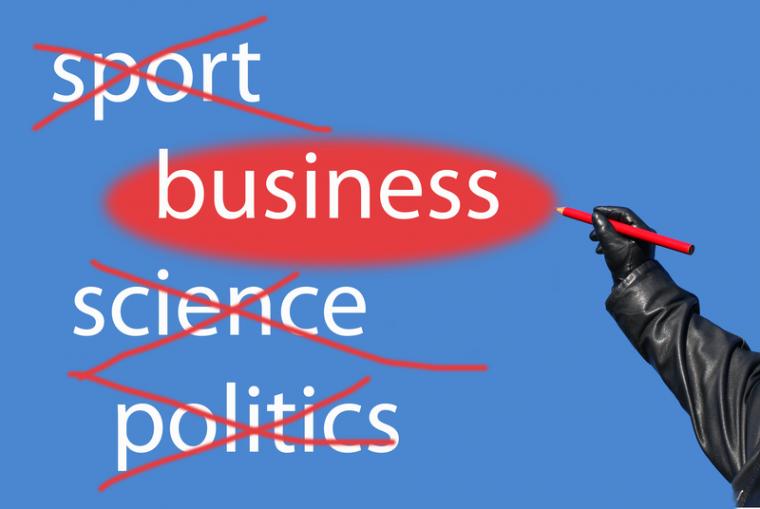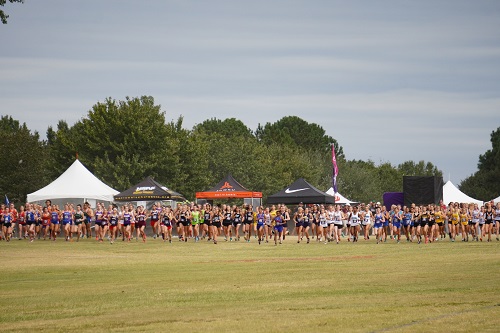

Anytime a governing body undergoes public scrutiny, there’s the potential for disruption to the sporting events it sanctions. While it’s too early to know what will happen with high school sports in North Carolina, it’s worth keeping an eye on efforts by state lawmakers to strip the North Carolina High School Athletic Association of its power.
The NCHSAA, established in 1913, oversees more than 400 schools throughout the state — representing more than 200,000 participants.
House Bill 91 would dissolve the organization and bring it under state control. Titled “Accountability and Fair Play in Athletics,” the bill specifically “would replace the association’s 23 board of directors with a 17-member commission, nine of which will be appointed by the governor to four-year terms and four appointees each coming for the Senate Pro Tem and General Assembly House Speaker,” according to The Daily Reflector of Greenville, N.C. The paper added that Gov. Ray Cooper likely would veto any such bill.
The proposal stems from Republicans in the North Carolina General Assembly who, as the Chatham News + Recordput it, “have long been at odds” with the NCHSAA.
According to the newspaper:
Essentially, some members of the state legislature are upset that the NCHSAA hasn’t seemed willing to cooperate with them in regards to concerns over the organization’s finances.
In April, a months-long investigation into the organization by the legislature revealed that the NCHSAA’s total assets, valued at over $41 million, put it ahead of all other state athletic associations in the country.
Senate Republicans have expressed concern about an imbalance in the dispersal of the organization’s funds, calling into question what its money — including its endowment fund of $26.5 million, according to NCHSAA Commissioner Que Tucker — is going toward.
The News & Observer of Raleigh added this:
Sen. Vickie Sawyer, an Iredell County Republican and one of the bill sponsors, … said she reviewed the NCHSAA’s most recent tax filings, which showed annual operating expenses of approximately $5 million. The commission lawmakers want to create would only require about $1.5 million in annual expenses, she said, with the biggest savings coming from lobbying fees, pension plans, asset management fees, conference travel and other things that “would not be transferred to this new association.”
The cost per high school could drop from $11,729 under NCHSAA to approximately $3,700 under the new commission, Sawyer said. She emphasized that the figures were rough approximations, but noted that they represent “significant savings for our public schools [that] would give them the financial freedom to control their own sports.”
“The NCHSAA is not hoarding money, simply put,” James Alverson, assistant commissioner of the association, countered when speaking to the Senate Finance Committee. “The NCHSAA has responsibly governed high school athletics for the state of North Carolina for 110 years, and I ask you to continue to work with us to improve what we do for students.”
“We believe that high school athletics in our state should not be a political issue,” added NCHSAA Commissioner Que Tucker, calling the bill a “full scale attack.”
According to a survey of 230 high school athletic directors in North Carolina conducted by HighSchoolOT.com, more than 86 percent oppose HB 91, with the rest either supporting the bill or unsure if they do.
The National Federation of State High School Associations (NFHS) counts 51 autonomous state associations (Iowa has two, one for boys and one for girls). Some govern athletics and other activities, while others — including the NCHSAA — focus only on sports. The mission of them all, according to Dr. Karissa L. Niehoff, executive director of the NFHS, is “to regulate/direct sports and/or other activities, to provide educational opportunities for high school students in their state and to provide equitable, fair and safety-focused competition.
In one her recent weekly essays, Niehoff noted that “in some cases over the years, individuals outside the school setting have been added to governing boards of state associations to provide different perspectives. Many of the NFHS member associations seek to have collaborative relationships with state legislatures to monitor pending legislation, striving to keep the communication channels open and remain educationally — and not politically — connected and focused.”
She added that “the NCHSAA has been one of the most respected associations in the NFHS for many years — developing programs with sustainability to ensure that participation opportunities remain available for generations of students to come. With visionary leaders … the NCHSAA has crafted innovative programming such as its Student Services and Endowment Programs that have been emulated by other associations across the country. … The NCHSAA has established programs to ensure that the privilege of competing in high school sports is available to everyone in their member schools — and that everyone is treated in a fair and equitable manner.”
The proposed bill is generating lots of attention, which apparently is what North Carolina lawmakers wanted. Representatives from the association recently met with state lawmakers in an attempt to see more eye-to-eye regarding how the NCHSAA operates.
“We need to fix the organization, but there needs to be some framework and legislation around what that looks like,” Sawyer said. “Do I wake up in the morning and say, ‘I want the North Carolina High School Athletic Association to die?’ No. I never at any point did that, but unfortunately it took House Bill 91 to get them finally to the table.”
State high school associations coming under fire from state legislatures is nothing new, and regardless of what happens next in North Carolina, it’s important to pay attention to such developments. The way high school sports operate in some states can be an indicator of how other amateur sports operate there, too. Keep your eye on this one.

